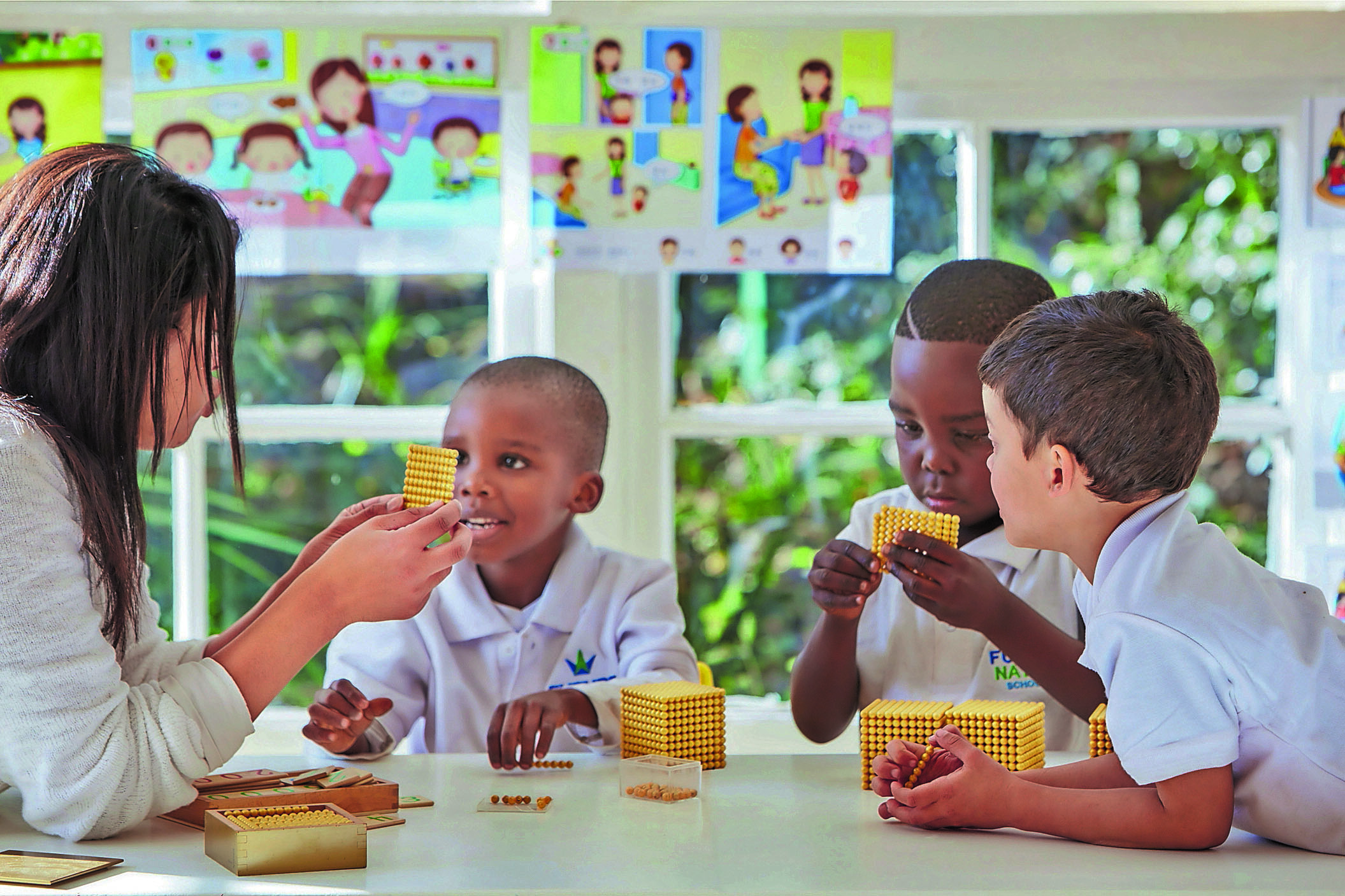Future Nation Schools delivers a world-class academic programme within the context of an African framework and through a Project-Based Learning
Schools no longer need to be a place of endless corridors and desks in straight rows. As our way of teaching changes, we need to create spaces and lessons that excite and energise children.
In addition, we should visualise teaching strategies that will ensure that students are engaged in their learning, after all the 21st century learning should not merely involve the use of laptops, tablets and smartboards.
Introducing Future Nation Schools
Future Nation Schools, part of the Sifiso Learning Group, founded by Sizwe Nxasana and Dr Judy Dlamini, are spearheading the African education revolution by providing a model that is both futuristic, technology-enabled and epitomises excellence in Africa. The project aims to address the local educational issues that we face as a country.
Ultimately the year-old schooling group is striving to create the ideal learning environment, develop exceptional teachers and content, and create an entire academic and socio-emotional support structure to ensure that every child who comes through their doors receives an optimal learning experience, specifically crafted to individual needs and strengths.

The Future Nation Schools Curriculum
What characterises Future Nation Schools? They are characterised by student-centred learning, high academic standards, applied research and development, innovation, leadership and entrepreneurship. They also embark in African studies.
In addition,The Future Nation Schools curriculum is designed to not only meet the minimum state standards, but incorporates best practice from around the world to supplement these standards with further content and skills. They are also governed by the CAPS national curriculum guidelines.
While the learners write IEB-based final year exams (aligned to South African independent school standards), the schools firmly believe that the skill sets learners require once they enter the “real world” is over and above that which they are tested on in matric. The Future Nation Schools curriculum is thus modeled with both the matric exemption pass and the requirements of a successful university student, entrepreneur or business person in mind.
The Future Nation Schools education model
The schools ensure they are delivering a world-class academic programme within the context of an African framework and through a Project Based Learning (PBL) pedagogy.
The teachers implement fully immersive PBL methods of teaching and learning. This means that students not only use technology to learn, but they design their own projects, playing real life problem solving roles within these projects and challenges.
This alternative way of teaching and learning is new to South Africa, although occasionally tackled in individual subjects and the principles occasionally applied, this full PBL curriculum is a first.
This immersive method differs from common instructional methods as the educators meet the students at their level and focus on using their interests to ensure maximum material retention and understanding. The PBL model refers to students designing, planning and carrying out an extended project that produces a publicly-exhibited output such as a product, publication or presentation.
Future Nation Schools elected to use this approach for all grades and subjects because it encourages enquiry in students and allows for students to experience how the theory they are taught is applied in the real world.
Future Nation Pre-Schools use the Montessori teaching model in the classrooms. The Montessori approach supports self-directed, enquiry-based learning that teaches children collaboration, independence and purposeful work. Montessori teachers lead children to ask questions, think for themselves, explore, investigate, and discover. The ultimate objective is to help children to learn independently and to stimulate their natural curiosity, creativity, and intelligence.
What sets Future Nation Schools (FNS) apart from the traditional school structure?
The Future Nation schooling model aims to give children the best start in life by:
Promoting diversity: FNS believe in diversity in every aspect – from cultures to skill sets to teachers’ unique journeys to becoming educators. FNS hire teachers who have worked in banks and have built houses; teachers who are writers and artists, because we know that nothing can replace life experience.
Employing top academic talent: FNS ensure that our teachers and staff keep their skills fresh, relevant and up-to-date.
Promoting continuous learning and access to top content: FNS believe we are on a learning journey throughout our lives and want to encourage students to always be aware of their capacity to grow and develop beyond even what schooling can provide them.
Immersive Technology: FNS ensures students use technology effectively, using alternative methods of teaching that keep students interested in the learning process.
Providing a safe and beautiful learning environment: As the ways of teaching change, FNS are developing educational spaces that excite children and energise them.
Adhering to strong values: The group has been built on the values of diversity, fun, passion, excellence, integrity and respect.
Join Future Nation Schools for one of our open days to experience these unique schools.
Future Nation Preschools are situated in Lyndhurst, Parkview, Fleurhof, Randburg and Sandton. Future Nation Primary and High Schools in Lyndhurst and Fleurhof are accepting enrolments for for 2018.
Opt to enrol your child in 2018 and ensure your child receives a world class African education. www.futurenationschools.com